Thomas Mann House Events Archive
May 2023
Carpool Community Engagement – How Civil Society Shapes L.A.’s Neighborhoods: Part I (Video Release)
Online
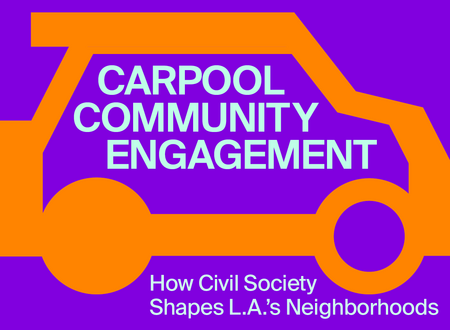
During their Fellowships at the Thomas Mann House, historian and innovation researcher Rubina Zern-Breuer and Swenja Zaremba, research associate at the Centre for Cultural and General Studies at the Karlsruhe Institute of Technology, focused on meaningful interactions between public administration and civil society. The two met with a variety of activists, social workers, and community organizers to talk about their practices and experiences in the City of Los Angeles. From infrastructural challenges to problems with racism, housing, gang criminality and poverty: How can local participatory approaches strengthen trust, help individuals and repair urban infrastructures? What transformative potential for public organizations as well as for civil society networks can these approaches hold? Together with their guests, they explore how collaborative approaches on the local level can effect communities – and what we can learn from them for Germany in terms of trust and collaboration.
Join Rubina and Swenja in the Thomas Mann House van on their tour through different Los Angeles communities! Learn more about the different approaches, methods, projects and civil society initiatives and how they make a difference in the city.
Episode 1 includes interviews and tours with Jordan Wynne, Housing and Homelessness Policy Expert at United Way of Greater Los Angeles, Blair Imani, Author & Activist, and Tony Brown, CEO & Activist at Heart of Los Angeles.
Stay tuned for Episode 2 next month!
Video (Coming Soon!)
Participants
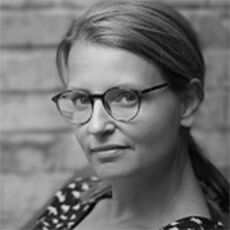
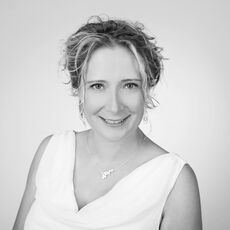
On Journalism, Technology & Democracy: An Evening with Maria Exner and Guests
Los Angeles
Maria Exner, 2023 Thomas Mann Fellow is joined by Colin Maclay, Research Professor of Communication and the Executive Director of the USC Annenberg Innovation Lab, and Maria Eryn Brown, Editorial Director at Zócalo Public Square, a selected group of journalists, entrepreneurs and researchers to provide insights into their work practice.

During her time the Thomas Mann House, Maria Exner will deal with the question of what contribution journalism and media can make to maintaining social cohesion in times of technology-driven polarization of opinion – and what journalistic self-image must underlie this contribution. Taking into account the perspectives of experts in California, the USA, and Germany, generalizable lessons will be drawn and made available to the public and the next generation of journalists. This evening is an opportunity for experts from both sides of the Atlantic and from different professional backgrounds to discuss issues related to journalism, technology and democracy.
Participants
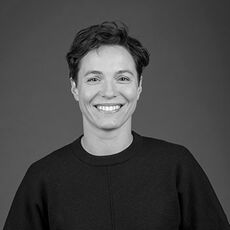
Maria Exner studied journalism in Munich. She then trained as a journalist in Berlin and worked as a reporter for the WELT Group. After studying cultural sociology at the London School of Economics, she became the cultural editor at ZEIT ONLINE in 2011. Since 2015, as deputy editor-in-chief she has developed future-oriented magazine journalism and innovative digital projects for ZEIT ONLINE and ZEIT. Since July 2020, Exner has been Deputy Editor in Chief of ZEIT-Magazin. She is founding director of Publix, a new Berlin-based organization with the goal to strengthen independent media and free, critical discourse.
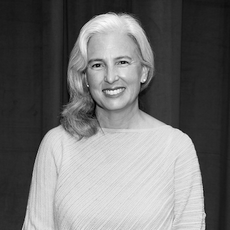
Eryn Brown is a Los Angeles-based editor and writer who joined Zócalo Public Square as an editor-at-large in 2017. A former staff writer at the Los Angeles Times and at Fortune Magazine, she has covered science, health, business, and a variety of other subjects, and has written stories for the New York Times, Wired, Nature, and other outlets. She graduated from Harvard College in 1993. Founded in Los Angeles in 2003, Zócalo Public Square is an ASU Media Enterprise, syndicating journalism to 290 media outlets worldwide.
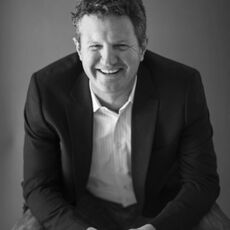
Colin Maclay is a Research Professor of Communication and the Executive Director of the USC Annenberg Innovation Lab. Situated at the intersections of disciplines, sectors and communities, AnnLab takes a think-and-do approach to exploring the interaction of society’s wicked problems — and opportunities — with media, technology and culture. Colin has long been motivated to understand how radical changes in communications capacity, information generation and processing affect otherwise immutable organizations and institutions, recognizing that humans and organizations are more complex than technology. Ultimately, his work asks what mix of forces will help these emerging technologies and practices to work for – not against – people and society broadly. Previously, he was founding director of the Digital Initiative at the Harvard Business School. He remains a senior researcher and member of the center’s Fellows Advisory Board. He also spent a decade helping to build, scale and make sustainable Harvard University’s Berkman Klein Center for Internet & Society. Maclay holds a PhD from Northeastern University.
Attendance Information:
By invitation only.
Location:
Thomas Mann House
1550 N San Remo Dr
Pacific Palisades, CA 90272
Student Council on the "Political Mandate of the Arts" - With Steven D. Lavine
Online
Join the Wende Museum, dublab and the Thomas Mann House for this new monthly virtual program series on art and politics in times of crises. High school, undergraduate and graduate students invite prominent guest speakers to discuss topics relating to art, culture, politics and society. Every last Wednesday of the month, they will discuss different aspects of the topic with another expert and/or practitioner in the field. The interviews will be conducted online and are open to the public.
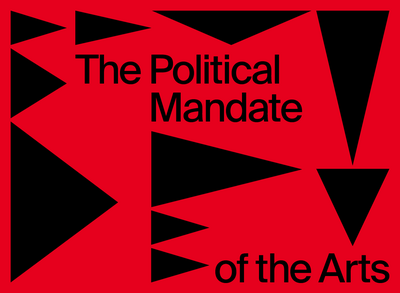
The freedom of art is one of the imperatives of every democracy. But does this freedom make art inconsequential? Does art have a role in addressing social issues, promoting social justice, or in defending democracy when it comes under pressure? In short: does art have a political mandate and what is the role of art in weakened democracies?
The Student Council consists of a team of highly engaged, talented, and diverse high school, undergraduate and graduate students who invite prominent guest speakers to discuss topics relating to art, culture, politics and society.
In conversation with visual artists, musicians, dancers, writers, theater and filmmakers, cultural critics, curators and others, the students will explore how the arts can make a difference in times of social and political crisis; on what social issues they can give new impulses; how they can help shape local communities; and how the alleged freedom and autonomy of the arts might impede or help the arts in terms of social and political significance.
This event will take place online.
Participant
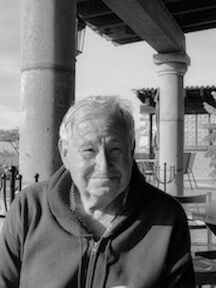
In the Spring of 2017, Steven Lavine stepped down after serving for 29 years as President of the California Institute of the Arts, becoming President Emeritus and an Honorary Doctor of the Arts degree. Shortly thereafter, he was appointed as Founding Director of the Thomas Mann House in Los Angeles.
At CalArts, Lavine oversaw a sustained period of growth in programs, enrollments, reputation, and financial stability. Among his proudest accomplishments at CalArts are the rebuilding of the campus after the devastation of the Northridge Earthquake in 1994; the national and international diversification of the CalArts student body; the building of the Community Arts Partnership; the establishment of REDCAT; and, above all, the maintenance at the center of all CalArts activity of creative and interdisciplinary exploration in the arts. He published two influential co-edited volumes: Exhibiting Cultures: the Poetics and Politics Of Museum Display (1991), and Museums and Communities: the Politics of Public Culture (1993), both published by the Smithsonian Institution.
Lavine is currently a Board member of the Los Angeles Review of Books, the American University in Rome, and the Cotsen Foundation for the Art of Teaching. He has been honored with the Cross of the Order of Merit of the Federal Republic of Germany, and Mexico’s Othli Award.
Watch our latest episode with choreographer Heidi Duckler here:
Meet the Student Council

Amy Cabrales is a First-Generation third-year undergraduate student at UCLA, studying Sociology, Anthropology, and the Russian Language. She is a Mexican-American, Los Angeles native born in Lynwood, California. Her career interests include museum work, social science research, and teaching English abroad in a Russian-speaking country.
Meghana Halbe is a first-year student at the University of Chicago studying Public Policy. She is from Los Angeles, California and her interests include politics, music, and history. She plans to pursue law school in the future and work in government.
Emma Larson graduated from Williams College in 2021 with degrees in History and Russian, and is currently teaching English in Kazakhstan with the Fulbright Program. Emma hopes to use the future of her professional and academic career to answer important questions about the entirety of the post-Soviet world.
Gianna Machera is currently a junior at Culver City High School. She was born and raised in Los Angeles, California, however she spends most of her holidays and summer traveling various places. She joined the council in 2022 and has absolutely loved the experience and growth she has had so far. She is very excited to see what the next year entails and feels privileged to be part of the council once again.
Natalie McDonald, a 2019 graduate of Pomona College (Claremont, CA), is currently pursuing her Master of Arts in History at California State University, Northridge. Her academic work focuses on migration, citizenship, empire & memory in twentieth-century Europe. Natalie plans to undertake doctoral studies in International/Global History within the next couple years.
Zora Nelson is a current second year undergraduate student at New York University, where she is studying Harp Performance and plans to also pursue Media, Culture, and Communications and Public Policy. As an east coaster, born and raised in Philadelphia, Pennsylvania, she discovered the Wende Museum in the summer of 2022 and is honored to be a part of the council. With a passion for writing, Zora sees a future in storytelling to promote social justice.
Anya Nyman is a current sophomore at Scripps College (Claremont, CA), currently studying History and Africana Studies. She joined the Wende student council in 2023 and is excited to add to the work the council has already done. Her academic interests include anticolonialism, twentieth-century West and Central African history, and international histories of and from the Global South.
Lexi Tooley is a current freshman at Howard University majoring in Art History and Political Science, and minoring in Chinese Language and Culture. She is originally from Los Angeles, California, and has been working with the Wende museum for the past year. She looks forward to continuing the search for truth through these student panels, as well as through learning about and from the curated art currently on display at the Wende.






